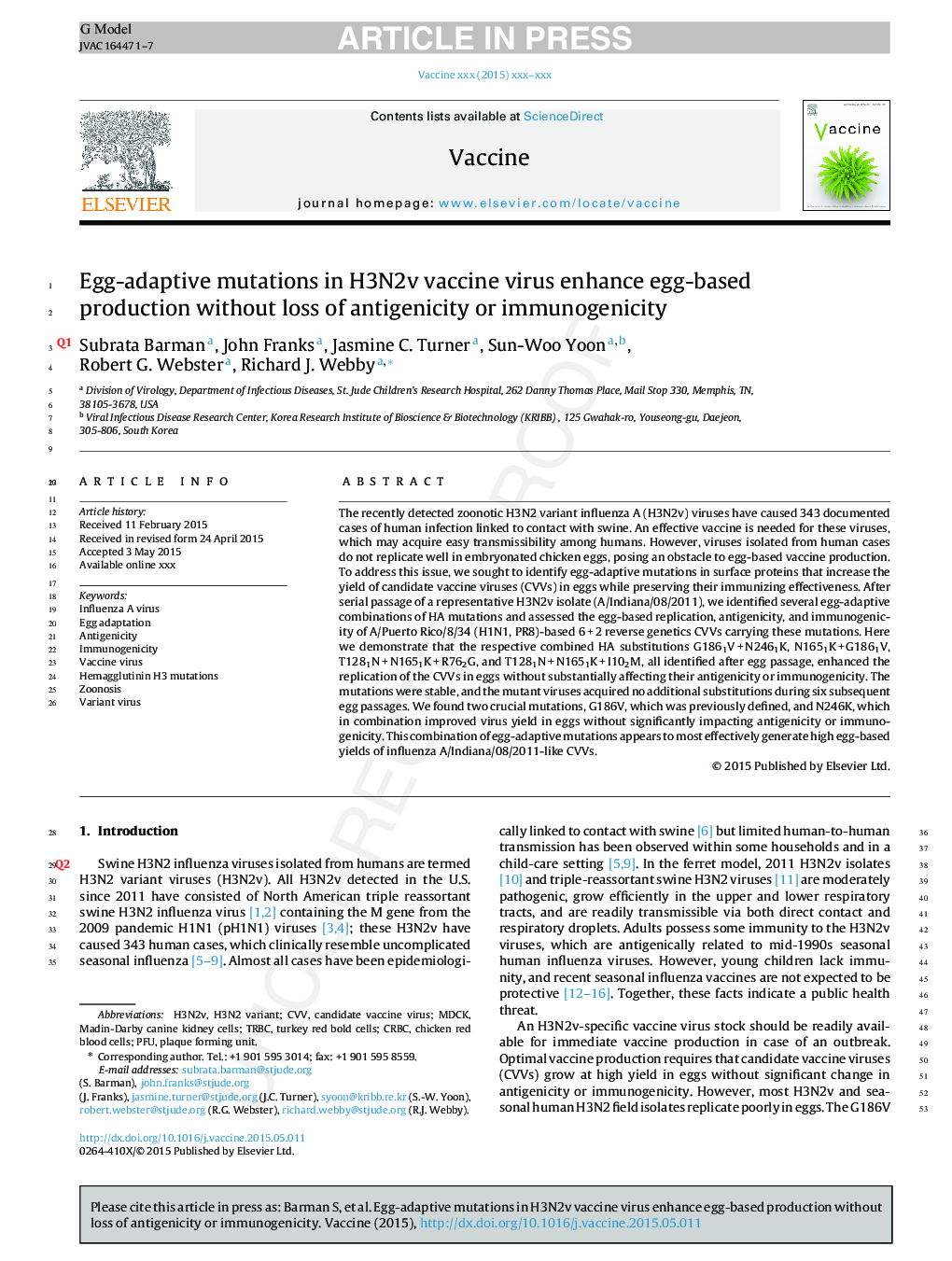| Article ID | Journal | Published Year | Pages | File Type |
|---|---|---|---|---|
| 10964216 | Vaccine | 2015 | 7 Pages |
Abstract
The recently detected zoonotic H3N2 variant influenza A (H3N2v) viruses have caused 343 documented cases of human infection linked to contact with swine. An effective vaccine is needed for these viruses, which may acquire transmissibility among humans. However, viruses isolated from human cases do not replicate well in embryonated chicken eggs, posing an obstacle to egg-based vaccine production. To address this issue, we sought to identify egg-adaptive mutations in surface proteins that increase the yield of candidate vaccine viruses (CVVs) in eggs while preserving their immunizing effectiveness. After serial passage of a representative H3N2v isolate (A/Indiana/08/2011), we identified several egg-adaptive combinations of HA mutations and assessed the egg-based replication, antigenicity, and immunogenicity of A/Puerto Rico/8/34 (H1N1, PR8)-based 6Â +Â 2 reverse genetics CVVs carrying these mutations. Here we demonstrate that the respective combined HA substitutions G1861VÂ +Â N2461K, N1651KÂ +Â G1861V, T1281NÂ +Â N1651KÂ +Â R762G, and T1281NÂ +Â N1651KÂ +Â I102M, all identified after egg passage, enhanced the replication of the CVVs in eggs without substantially affecting their antigenicity or immunogenicity. The mutations were stable, and the mutant viruses acquired no additional substitutions during six subsequent egg passages. We found two crucial mutations, G186V, which was previously defined, and N246K, which in combination improved virus yield in eggs without significantly impacting antigenicity or immunogenicity. This combination of egg-adaptive mutations appears to most effectively generate high egg-based yields of influenza A/Indiana/08/2011-like CVVs.
Keywords
Related Topics
Life Sciences
Immunology and Microbiology
Immunology
Authors
Subrata Barman, John Franks, Jasmine C. Turner, Sun-Woo Yoon, Robert G. Webster, Richard J. Webby,
